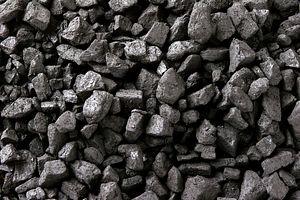When it comes to the effects of global climate change, Vietnam is one of the world’s most at-risk nations. Rising sea levels threaten to inundate both the Mekong and Red River Deltas, potentially impacting tens of millions of people. Vietnam is also one of the fastest growing economies in the world, growing by 7.1 percent in 2018. While it has benefited from investors’ anxieties over growing U.S.-China trade war, Vietnam has been on the up and up for the past several decades, led by its export-driven manufacturing sector. As an emerging market, the country is now seen to have great promise; however, Vietnam must take steps to balance this growth with a potential future prosperity that is inextricably linked to its environmental security. The country’s energy sector will play a key role in this, as it is necessary to facilitate Vietnam’s appetite for growth as well as a key determinant of the nation’s willingness to tackle climate change.
At the Paris climate talks in 2015, the Vietnamese government pledged to reduce its emissions by eight percent by 2030. The pledge falls under the projected linear trajectory and will prove challenging to marry with the country’s economic growth targets. To feed its growing energy demands, Vietnam has turned to coal-fired power generation, with the government expecting coal usage to increase fivefold by 2030. The use of coal has increased Vietnam’s national carbon emissions and is worsening air quality in many of its major cities. Hanoi is now comparable to Beijing in terms of air pollution, with its annual average air pollution being four times higher than the level deemed acceptable by the World Health Organization.
In many ways Vietnam mirrors the People’s Republic of China in the 1980s and 1990s, when the Chinese Communist Party opted to dismiss environmental concerns in its obsessive pursuit of economic growth targets. Only recently has China realized the incipient consequences of its policy decisions and begun to mitigate them. Vietnam is at a crossroads. It can either learn from the mistakes of its neighbour to the north or fall into a similar trap of unsustainable growth and environmental degradation.
Conveniently, Vietnam holds tremendous potential to utilize renewables instead of dirty fossil fuels. Vietnam has an estimated solar potential of six to 10 times what the United States currently has installed. The government has already made promising moves in this direction by introducing favorable policies such as purchasing power agreements and tax incentives that can encourage foreign investment into the country’s renewables sector. It is also piloting a promising new technology, floating solar cells, which leverage the country’s sizable existing hydro-electric infrastructure. Vietnam possesses natural endowments that could enable it to become a global leader in the solar energy.
And yet, despite its capacity for a revolution in renewable energy, the Vietnamese government is moving forward in two directions, with a continued focus on coal. In addition to its environmental and human health issues, Vietnam’s growing dependence on Chinese coal imports also presents important geopolitical questions over the country’s future energy security. As part of China’s Belt and Road Initiative, Beijing has made significant investments into the energy sectors of countries across Asia. According to a report by the World Resources Institute and Boston University, over 60 percent of those investments have gone toward fossil fuel projects, while only 6 percent have gone toward renewables. Through constructing new energy infrastructure, especially coal-fired power plants, China is building its soft power over neighboring countries.
China’s significant investments into Pakistan’s energy grid provide a clear example of how capable Beijing is of leveraging the surging energy demands of neighboring countries to exert greater influence over their governments and economies. While Chinese coal is alluring as a cheap and flexible power source, the Vietnamese government must also be cautious about affording China too much control over its national grid infrastructure.
Vietnam’s primary alternative to Chinese coal is renewables. Renewable energy will allow it to feed its growing demand for power in an economically and environmentally sustainable manner, while also allowing for greater autonomy over its national infrastructure. In other sectors, such as telecoms, emerging economies have demonstrated a remarkable ability to leapfrog traditional technologies and embrace new ones. If Vietnam can successfully do this with its energy sector, it could achieve a sustainable growth trajectory that would be a model for other countries to follow. In order to achieve this, Vietnamese government must do something that most governments struggle to do — place the interests of its future above the fast rewards of the present.
Brian Malczyk is the Executive Director of the Center for Development and Strategy.
Tim Robinson is the Editor-in-Chief at the Center for Development and Strategy.































